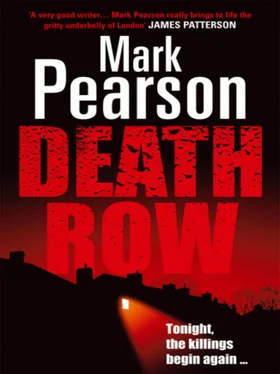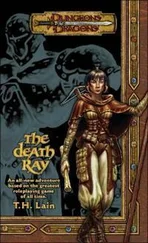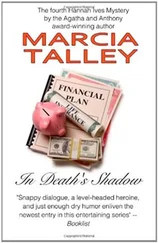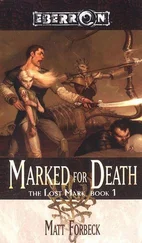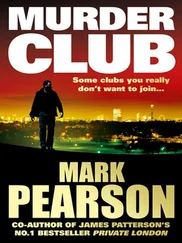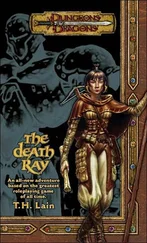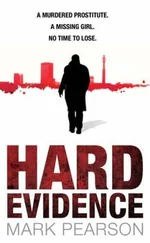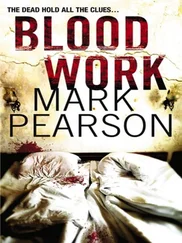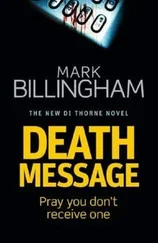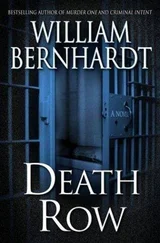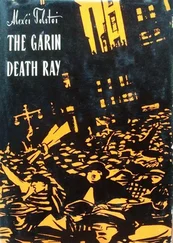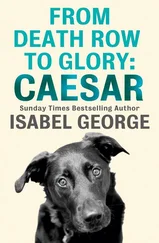Mark Pearson - Death Row
Здесь есть возможность читать онлайн «Mark Pearson - Death Row» весь текст электронной книги совершенно бесплатно (целиком полную версию без сокращений). В некоторых случаях можно слушать аудио, скачать через торрент в формате fb2 и присутствует краткое содержание. Год выпуска: 2011, ISBN: 2011, Издательство: Arrow, Жанр: Триллер, на английском языке. Описание произведения, (предисловие) а так же отзывы посетителей доступны на портале библиотеки ЛибКат.
- Название:Death Row
- Автор:
- Издательство:Arrow
- Жанр:
- Год:2011
- ISBN:9781407060118
- Рейтинг книги:3 / 5. Голосов: 1
-
Избранное:Добавить в избранное
- Отзывы:
-
Ваша оценка:
- 60
- 1
- 2
- 3
- 4
- 5
Death Row: краткое содержание, описание и аннотация
Предлагаем к чтению аннотацию, описание, краткое содержание или предисловие (зависит от того, что написал сам автор книги «Death Row»). Если вы не нашли необходимую информацию о книге — напишите в комментариях, мы постараемся отыскать её.
Death Row — читать онлайн бесплатно полную книгу (весь текст) целиком
Ниже представлен текст книги, разбитый по страницам. Система сохранения места последней прочитанной страницы, позволяет с удобством читать онлайн бесплатно книгу «Death Row», без необходимости каждый раз заново искать на чём Вы остановились. Поставьте закладку, и сможете в любой момент перейти на страницу, на которой закончили чтение.
Интервал:
Закладка:
Mark Pearson
Death Row
‘The percentage of adults who experienced sexual abuse as children and have had long-term side effects is not known. However, in one British study, thirteen per cent of the sample of such adults reported that they had been permanently damaged.’
Counselling Directory 2009
They all say it’s a physical thing. An urge. An uncontrollable desire that builds and swells, like an ocean at high tide, until action must be taken. A slow boiling of the blood. As uncontrollable and devastatingly powerful as a tsunami. But that isn’t it: it was part of it but just that — a part. It’s a mental thing, he knew that as well as any. Thoughts scuttling and skittering in the brain like hundreds of small crabs in a tin bath, climbing the sides with scratching, feverish claws, falling back into the writhing, clicking mass. Memories crawling through his mind like shickle in a turning drum.
Billy Thompson. Just eight years old and his first trip to the seaside. His first trip anywhere more than five miles from where he was born and had lived his entire life. It was deep in the cold-hearted grip of a brutal winter and he was huddled against the passenger-seat window, shivering against the cold. It was a boxy, draughty, metallic rectangle-on-wheels of a car, with a hard bench seat and the wind whistling through gaps in the doors and window frames. It bounced and clattered on the uneven road, jolting him and sending needles of pain shooting though his thin, bony body. The wipers were scratching thick, flurrying snow from the windscreen and tears were pricking his eyes so that his vision of the changing landscape outside was softened, blurred. His life behind him fragmenting like the flakes of snow scattering into pin-points in the rear-view mirror.
Billy’s uncle was a crab-and-lobster fisherman living in a small village on the south-east coast between Southend-on-Sea and Herne Bay. This tripwas the first time Billy had ever been away from his family home and he would never be returning. His father had been sentenced to three years in prison for battering his wife once too often; his mother had been hospitalised for three weeks, during which time Billy was looked after by his next-door neighbour, Grace Williams, a woman in her late sixties with a houseful of cats and a forgetful nature. When Billy’s mother returned from hospital she decided she couldn’t bear to look at her son’s face any more — she said he looked just like his father — and arranged for him to live with his Uncle Walter, her elder brother, who was looking to take on someone he could train as an apprentice. Billy had never met Walter before, a tall lean man with a face like a rusty hatchet, battered by sea and sun and wind, carved lines of cruelty written into it like the scratchings of a blunt bradawl.
Billy was bundled without ceremony from the car, shivering with the cold, the tears near-freezing on his cheeks, into a house that was only marginally warmer. He was put to bed with barely a grunt of welcome and a cold glass of water and then shaken awake at four in the morning to help his uncle at work. Cold, wet and hungry, he huddled in the back of the small craft as it slapped and danced on the yawing waters. Waves splashed over the sides, chilling his wind-blasted and sore face. He had made the mistake of complaining once — he didn’t want this, he wanted to go home — and his uncle had hit him. Not rebuked him or slapped him. But punched him. Hard, in the side of his face with a hand fashioned of sinew and muscle, knocking him to thefloor where he whimpered but didn’t cry. He had long ago learned not to cry out. Then the boat was anchored. ‘Inside’ as his uncle called it, a mile out to sea. He was huddled against crates filled with shickle, the remains of the crabs and the lobsters after they had been processed. Empty, broken shells, claws, legs, eyes. The smell filled his nostrils, and the sound as his uncle tipped the crates emptying the eviscerated carcasses back into the cold water was like the sound of an army of cockroaches skittering on a dance floor.
Like the thoughts dancing in his head now. Building like a symphony as the blood roared in his ears and he remembered how it all began. Back in that boat shed with the smell of the shickle still ripe in his throat and his uncle tall in the shadows as he pulled the door behind him closed and looked down on Billy, with the inhumanity of a feral thing, his eyes empty. Billy remembered the sharp cuts in his knees as he was forced to kneel, the slivers of lobster and crab shell cutting through the thin fabric of his jeans.
His uncle crossed to the workbench and turned on his new transistor radio; music played. The one everyone tipped for number one that Christmas. Johnny Ray, ‘Walking in the Rain’. It was nineteen fifty-six and it seemed to Billy that it had never stopped raining …
He remembered hearing the music and looking up and seeing his uncle’s eyes that were no longer empty. He felt the soft touch of the man’s hand on his head now that was almost like a benediction. He didn’t remember crying but he could feel the moisture trickling into his mouth, the sweet salty taste and thelingering fetid smell of rotting flesh. He looked across at the small window, stained green with algae so that the light filtering weakly through made him feel like he was at the bottom of the ocean.
He shook his head, clearing the ancient memory, and looked down at his twitching hand, arching it so that the sinews stood out like cord and made the blood vessels move below the translucent skin like thin blue slugs. His fingers curled inward, making his hand a crab.
The Year of Our Lord 1995.
Time to feed.
FRIDAY NIGHT
Jack Delaney handed the last of the plates to Siobhan, his seven-year-old daughter and the bright-eyed light of his life. She rubbed a tea towel quickly over it and then handed the plate to her Aunt Wendy, who dried it properly and put it in a wooden plate-rack that was mounted over the counter to the right of the sink.
‘Last one,’ said Delaney, pulling the plug out of the sink to release the soapy water.
Siobhan pointed to the old-fashioned penny that was set into the base of the plate rack. ‘Why do they put a coin in it?’
Delaney ruffled her hair. ‘The lady who makes them, it’s like her signature.’
‘It’s like Kate’s, isn’t it?’
‘It is. She helped me choose it.’
‘Just as well,’ Wendy said as she looked around the kitchen. ‘She has a good eye.’
Delaney grinned. ‘Obviously.’
Wendy laughed and flicked the towel at him. ‘I wasn’t talking about you, big-head. What do you reckon, Siobhan? If he was any more of a doughnut … sure he’d be eating himself.’
Siobhan laughed. ‘He’d be an apple doughnut.’
Delaney fixed her with a serious look. ‘Why apple?’
‘Because they’re my favourites,’ she said, with a musical laugh, and hugged him around the waist.
Wendy cast her gaze around the room. ‘Seriously, though, Jack. You’ve done a good job here. It actually feels like a home here now.’
‘Thanks. But, like I say, I had help.’
‘And like I say, just as well.’
‘Are you saying I haven’t got good taste?’
‘Only in women, Jack, only in women.’
Delaney looked around the kitchen himself, a slight smile playing on his lips as he realised how far he had come since meeting Kate. It was furnished now with a range of styles: a sturdy wooden farmhouse table, a Scandinavian rocking chair in the corner with a tapestried cushion on it, an antique dresser. Some original framed watercolours on the wall. If it had just been down to him he would have gone to IKEA and got the lot from there, but Kate had put her foot down and made him take his time to work at finding the right pieces of furniture. In just a few weeks he had the whole house decorated and furnished and his sister-in-law Wendy was right, he realised. It did feel like home. In a way he was sad to have finished. He had really enjoyed hunting down pieces with Kate: from antique shops and auctions, from bric-a-brac stalls — photos and prints and original watercolours, sofas, chairs, sideboards, cutlery, crockery, glassware, wine rack and wine, whisky decanters and — most important of all — a big sled-style rubberwood bed they had bought from John Lewis that sat in the middle of Delaney’s wooden-planked master bedroom with antique mahogany pot-cupboards either side like a statement that Jack Delaney was back and open for business.
Читать дальшеИнтервал:
Закладка:
Похожие книги на «Death Row»
Представляем Вашему вниманию похожие книги на «Death Row» списком для выбора. Мы отобрали схожую по названию и смыслу литературу в надежде предоставить читателям больше вариантов отыскать новые, интересные, ещё непрочитанные произведения.
Обсуждение, отзывы о книге «Death Row» и просто собственные мнения читателей. Оставьте ваши комментарии, напишите, что Вы думаете о произведении, его смысле или главных героях. Укажите что конкретно понравилось, а что нет, и почему Вы так считаете.
